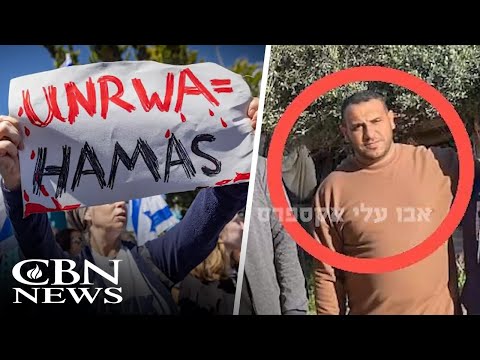Recently, there have been concerning revelations regarding the United Nations Relief and Works Agency for Palestine Refugees in the Near East (UNRWA). A growing number of reports have emerged, indicating that this agency might have ties to Hamas, leading to serious questions about its operations and intentions. Critics assert that UNRWA has become intertwined with the very violence it is supposed to alleviate, raising alarms not only for Israelis but also for the millions of Palestinians who rely on its services. This disconcerting situation calls for a closer examination of how humanitarian aid aligns with moral values and the teachings of faith.
Observing the developments from Jerusalem, it becomes increasingly evident that humanitarian aid should not inadvertently support entities linked to terror. The tragic events of October 7, where Hamas terrorists brutally murdered innocent Israelis, highlighted the complexities and dangers surrounding the aid provided by UNRWA. It has been reported that individuals involved in this massacre were also connected to the agency, underscoring the potential for humanitarian efforts to be exploited for harmful purposes. Such revelations challenge the moral integrity of supporting an organization that appears to be compromised by terrorist affiliations.
The situation has provoked significant political action within Israel. In a decisive move, the Knesset passed legislation to distance the country from UNRWA, reflecting a growing sentiment that the agency is not only failing to serve its intended purpose but also contributing to the cycle of violence. This decision is rooted in a desire to ensure that aid is directed toward those who truly need it, without the risk of it being misused by terrorist organizations. The moral imperative here aligns with the call to protect innocent lives and promote peace rather than perpetuating conflict.
Moreover, critics of UNRWA highlight that its very existence contributes to an ongoing status of dependency among Palestinian refugees. Unlike other refugee agencies, UNRWA allows its status to be passed down generations, creating a growing population of individuals reliant on its support. This system raises important questions regarding how aid is administered and whether it effectively addresses the root causes of the challenges faced by Palestinian communities. A faith-centered perspective advocates for solutions that empower individuals and communities to break free from cycles of dependency and violence, fostering environments conducive to peace and stability.
There is also a pressing concern regarding the education system facilitated by UNRWA. Reports suggest that many school principals within the agency have links to Hamas, raising alarms about the nature of the education being provided. In a world that should strive to teach love, compassion, and understanding, the presence of ideologies promoting hatred and violence contradicts the very essence of moral and spiritual teachings. It is vital for communities around the world, especially those grounded in faith, to advocate for educational systems that promote peace, understanding, and reconciliation, rather than fueling further division and conflict.
As the discussion around UNRWA continues, it is imperative for the international community to seek alternative methods of providing aid that adhere to ethical standards and genuine humanitarian principles. The question remains: how can communities uphold their duty to assist others while ensuring that their efforts do not inadvertently support organizations that promote violence? This moral quandary invites deeper reflection on how faith, compassion, and responsible action intersect in the quest to build a world where peace prevails, and lives are cherished.



